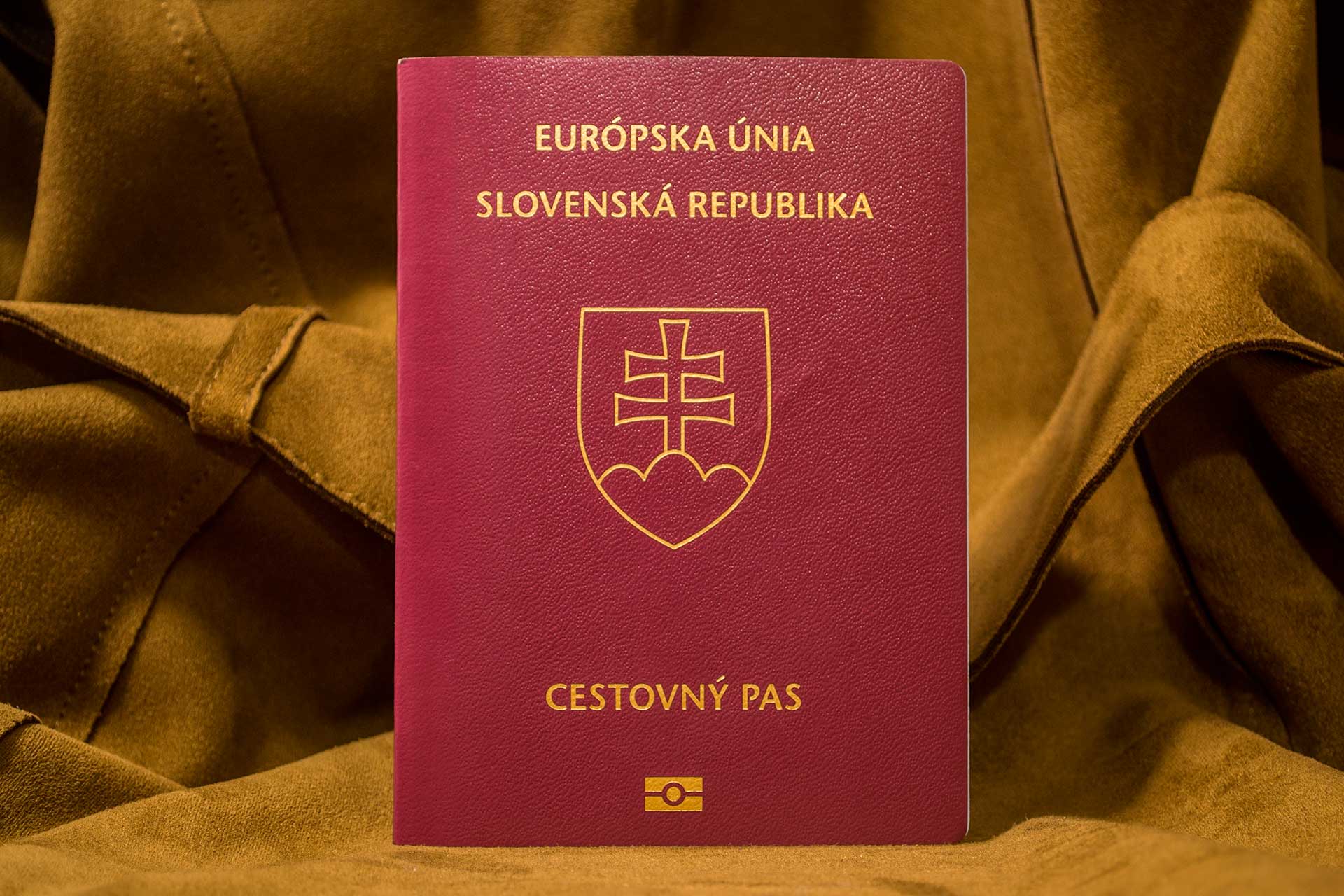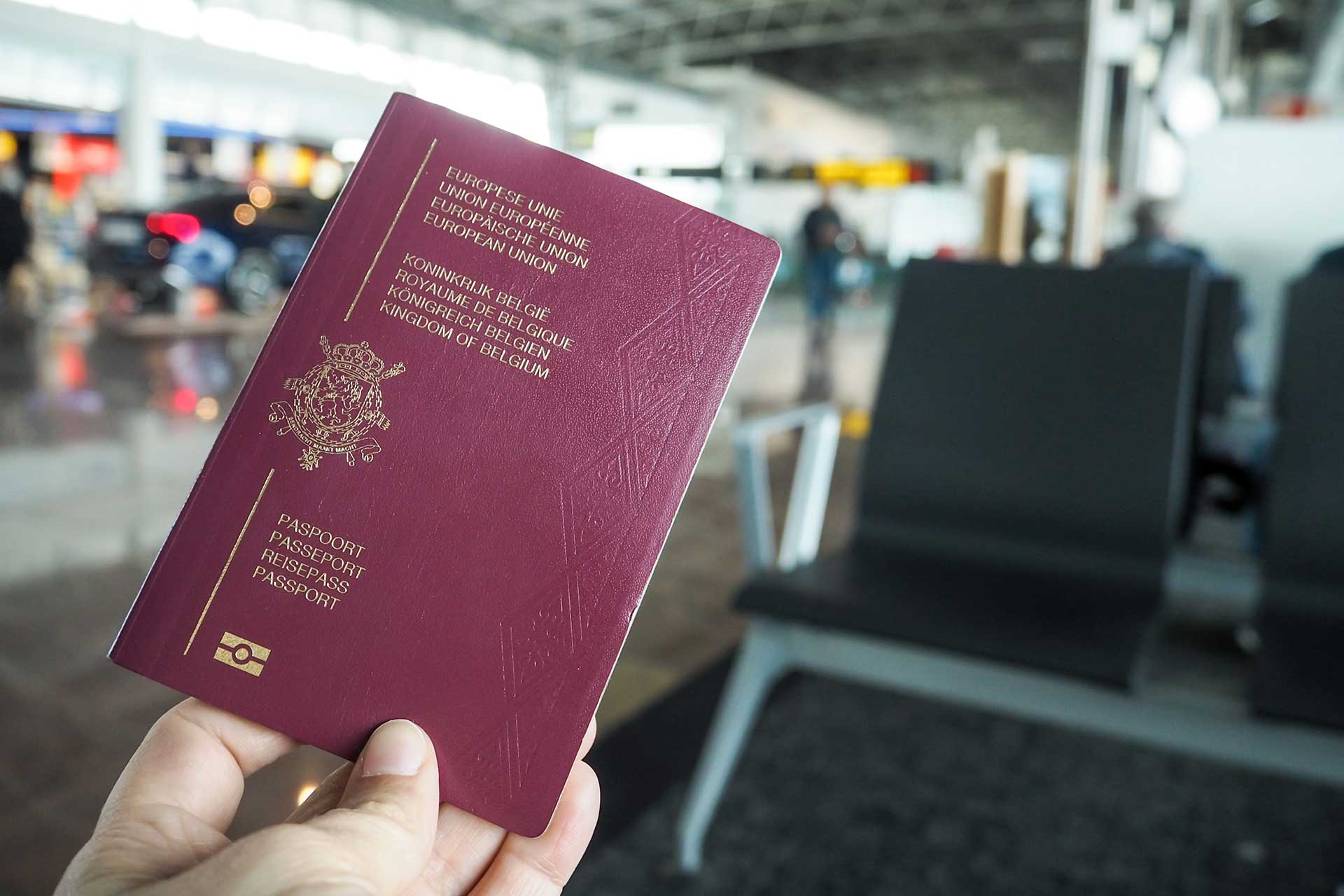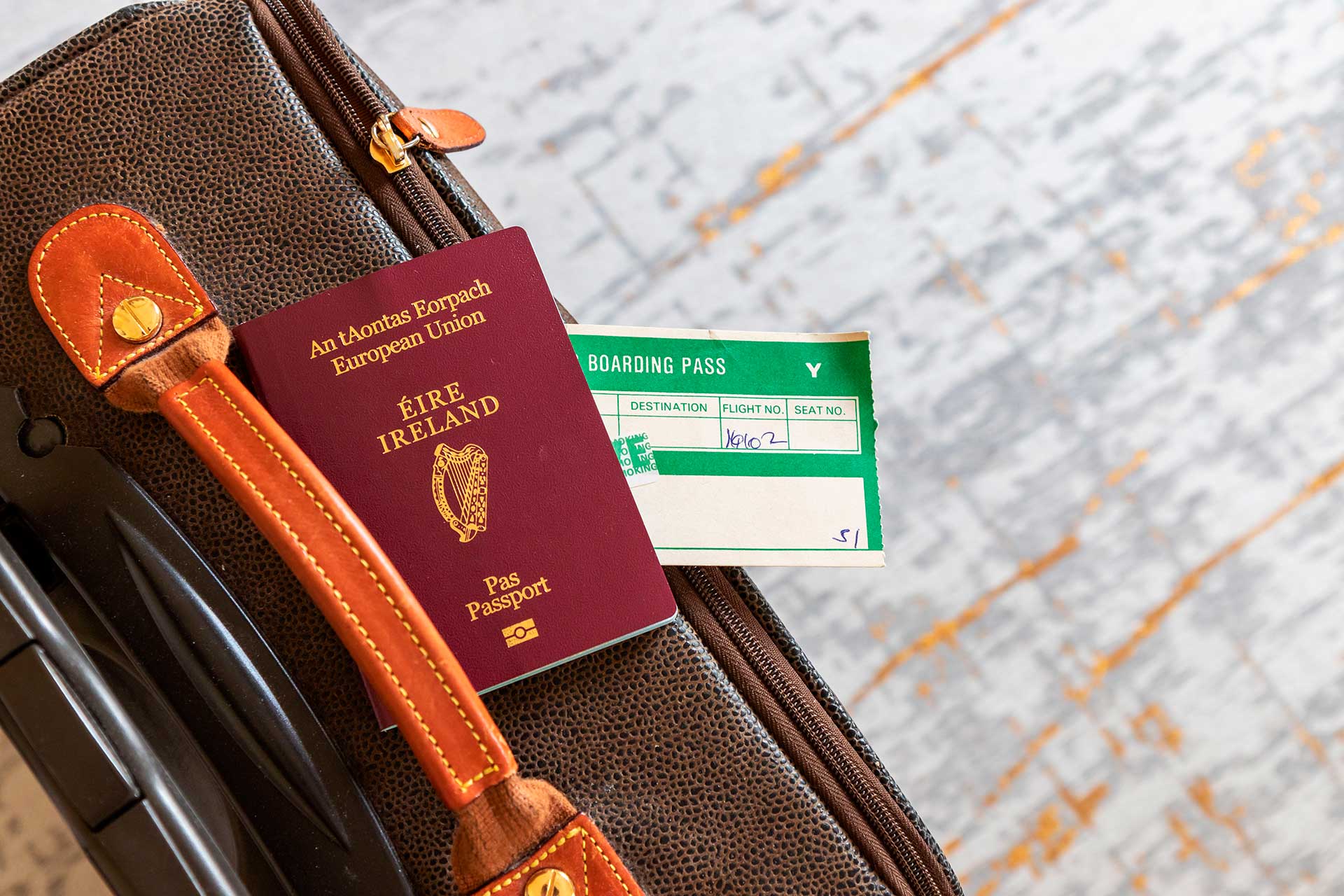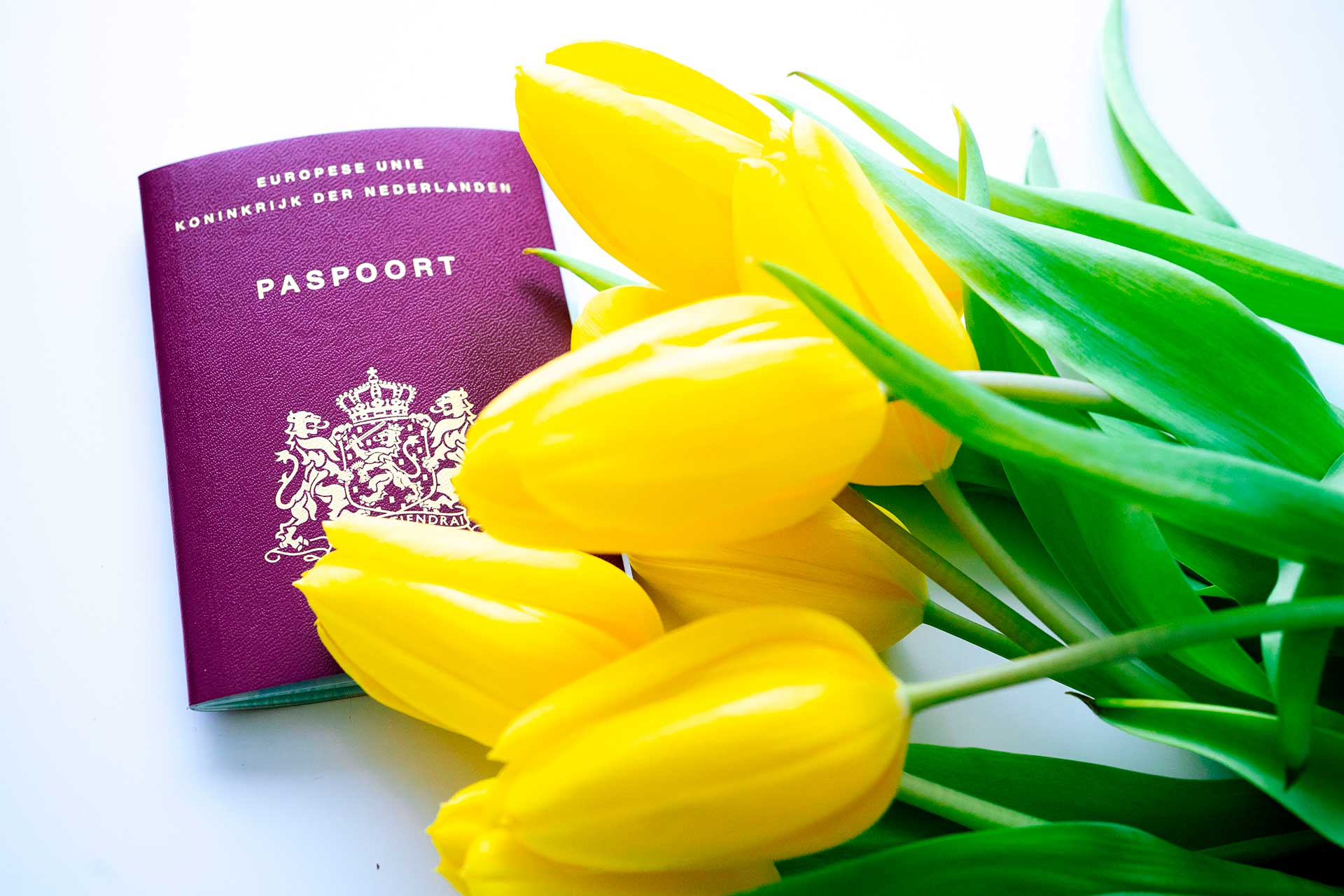- Advantages of Lithuanian citizenship
- Main ways of obtaining a Lithuanian citizenship
- Requirements and procedure for obtaining a Lithuanian citizenship
- How much time and money it takes to obtain citizenship of Lithuania
- What doesn't work: how you can't get a Lithuanian passport
- Dual citizenship in Lithuania: is it allowed to have several passports?
- Where it is faster and easier to obtain a second passport: an overview of alternatives
Lithuanian citizenship can be obtained by foreign applicants who have permanently resided in the country for 10 years or more and meet the requirements of its legislation. The process of obtaining the status is regulated by the Law on Citizenship. Most immigrants obtain a Lithuanian passport by naturalization, the main disadvantages of which are the length of the residency requirement and the complexity of the procedure. To acquire citizenship, it is necessary to speak the state language, have a permanent source of income, be law-abiding and reside in the country legally.
Obtaining the status of a Lithuanian citizen is popular among immigrants, as they thus become EU passport holders. The country has many advantages, including a high standard of living and security, as well as many different opportunities and prospects for career development and business.
Advantages of Lithuanian citizenship
Lithuanian citizenship guarantees a number of advantages, which are largely due to the country's participation in the European Union and the specifics of the state policy. The main advantage of this status is visa-free travel throughout the EU territory with the right to reside and self-fulfillment in any country of the association, as well as in the European Economic Area and Switzerland. In addition, a Lithuanian citizen has a number of other privileges:
- access to the EU labor market with the right to employment in highly paid positions with extensive prospects for professional development;
- the opportunity to open businesses in the country's seven free economic zones with preferential tax rates on profits, dividends and real estate (0% for the first 10 years of operation);
- the right to social protection according to European standards, including pensions, unemployment benefits and childcare assistance;
- visa-free travel to more than 160 countries around the world;
- higher education in prestigious Lithuanian and European universities, including on preferential or free-of-charge basis;
- participation in international student exchange programs and European grant projects;
- access to loans and assistance programs for the development of small and medium-sized businesses from the European Union;
- the right to vote in elections and referendums in the European Parliament, as well as other types of participation in the political life of the country, guaranteed by EU citizenship;
- the possibility to retain original citizenship in some cases;
- consular assistance and protection around the world.
You can find out detailed information about the available ways of moving to Lithuania by filling out the form on the website for a free consultation with our specialists.
Main ways of obtaining a Lithuanian citizenship
There are several methods of obtaining a Lithuanian passport in 2026, namely birth, restoration, naturalization and repatriation. Each of the methods of obtaining citizenship has its own conditions and can be used by a certain category of applicants, so let us consider them in more detail.
Birth
Children of Lithuanian citizens automatically acquire the same status regardless of the place of birth. A child whose father or mother has citizenship of another country may also obtain a Lithuanian passport. In such a case, if the birth took place outside the Republic, citizenship is assigned by mutual agreement of the parents.
Restoration
Applicants who held a Lithuanian passport before June 15, 1940 and resided in other countries (provided they were not repatriated), as well as their children, grandchildren and great-grandchildren may regain the status of a citizen of the Republic of Lithuania. Citizenship is granted to applicants upon application and entitles their family members to enter the Republic of Lithuania without issuing visas and to reside there without being subject to the requirements of the Immigration Law.
Naturalization
Applicants who have been staying in the country for 10 years or more and have a residence permit may acquire the status of a Lithuanian citizen by naturalization. The residence permit is granted to applicants who stay in the state on one of the following grounds:
- family reunification - the right to stay in the country is granted to relatives of Lithuanian citizens and persons who have residence permit/permanent residence in the Republic;
- employment - a residence permit is granted to those who have concluded an employment contract with a Lithuanian employer or arrived as part of a transfer within an international enterprise. The permit may also be granted to highly qualified specialists and employees engaged in research and development activities. The residence permit is valid for 2-3 years with the right to extend it, but not longer than the term for which the employment contract or contract is concluded;
- entrepreneurial activity - the applicant must prove legal activity in the territory of Lithuania for the last 6 months. The law also requires contracts with employees, agreements with clients, licenses and other documentary evidence of business activity. The first permit is issued for 2 years;
- education - residence permits are issued to students of Lithuanian universities and specialists who undergo professional requalification or internship. If the student is a minor, he/she needs to provide an official authorization from a guardian or parents. The term of validity of the residence permit is 2 years and can be extended.
Marriage
Aliens who have been married to a citizen of the Republic of Lithuania for seven years and have been legally residing in the country together with their spouse can obtain citizenship. In order to obtain the status, it is necessary to document the period of stay in Lithuania and submit a permanent resident card issued in connection with the marriage.
Repatriation
The Law on Citizenship of the Republic of Lithuania regulates the granting of the country's passport to applicants who are of Lithuanian origin. Applicants whose parents, grandparents or grandparents have Lithuanian roots can take advantage of this opportunity. Repatriates are not required to meet the standard naturalization requirements.
Special Merits
A foreigner who has made a significant contribution to the development of the Republic has the right to become a Lithuanian citizen under a special procedure. The applicant must reside in the country and speak the state language, while other requirements for naturalization are excluded. Much attention is paid to the applicant's level of integration into Lithuanian society, but a permanent resident card is not required in this case.
Get EU citizenship fast and easily
Learn how to become an EU citizen through simplified programs
Requirements and procedure for obtaining a Lithuanian citizenship
To apply for a Lithuanian passport under the naturalization procedure, you must fill out an application on the website of the Lithuanian Immigration Information System and submit the following documents:
- passport or identity card;
- permanent residence card;
- proof of legal residence in the Republic of Lithuania for the last ten years;
- income certificate or bank account statement (monthly minimum amount is 1,038 EUR for an adult and 519 EUR for a minor);
- a written statement on renunciation of citizenship of the country of origin when obtaining status in Lithuania;
- a document confirming the passing of examinations in the Lithuanian language and the basics of the Constitution of the country.
The requirement to speak Lithuanian and pass the tests does not apply to the following categories of applicants:
- applicants aged 65 years and older;
- applicants who are unable to work
- foreign nationals with severe chronic behavioral and mental disorders;
- persons under 18 years of age.
The process of citizenship in Lithuania consists of several stages. In the reviews of immigrants who have received a passport of the Republic of Lithuania, there is often a recommendation to collect and properly prepare all documents issued by the country of origin in advance. The procedure itself is as follows:
- Visa issuance. In order to legally enter the Republic of Lithuania, a visa must be obtained by applying to the consular representation in the country of origin. Along with the application you will need to submit a package of documents confirming the need for a long stay in the country.
- Submission of an application for a temporary residence permit. The applicant should register the application on the website of the MIGRIS Immigration Service, after which he/she should personally come to the Department of Migration to finalize the procedure and submit a personal file. It is important to legalize all documents issued by another country and translate them. Based on the personal situation and the reason for moving, permits are issued for different periods of time and may be subject to renewal.
- Passing the test. Since the mandatory requirement for obtaining residence permit and citizenship is proficiency in the Lithuanian language and familiarity with the basics of the Constitution, the applicant should register to take the exam at the National Education Agency. The testing program, along with sample tasks and dates of taking the exam, is published on the official website of the institution. Upon successful completion of the exam, the applicant is provided with a certificate to be presented when applying for permanent residence and citizenship.
- Registration of permanent residence. After five years of residence in the Republic of Lithuania, foreign nationals are entitled to apply for permanent residence. The application is submitted online, after which a personal visit to the Migration Department is required. Important requirements are the availability of housing and a stable source of income in the Republic, as well as proficiency in the Lithuanian language and knowledge of the basics of the Constitution of the state. The permanent residence permit is valid for 5 years and on its basis one can stay in the Republic until citizenship is issued.
- Filing an application for citizenship. The application for citizenship is filled out online through the website of the Immigration Service, after which it is necessary to make an appointment at the Migration Department and visit it within 4 months from the date of registration of the application. During the visit, it is necessary to bring the original documents with you, and you will also need to pay an administrative fee. It takes several months to review the case, and you can check its status on the official website of the Department.
- Receipt of the decision and swearing in. In case of a positive decision of the authorities, the applicant receives the Order of Citizenship. Within six months, he/she must take the oath of citizenship, for which he/she must submit an application and book the date of the ceremony through the MIGRIS resource. The procedure takes place at the Ministry of the Interior and upon completion of the procedure, the participant receives a Certificate of Citizenship. This document is used to verify the applicant's status by the authorized bodies when issuing a Lithuanian passport.
- Obtaining internal documents. To obtain a Lithuanian identity card, one should apply to the Migration Department. The document looks like a plastic card with the applicant's photo. To cross the border, a passport in a book format is issued. During the application process, it is important to submit your valid travel document and the Certificate of Citizenship of the Republic of Lithuania.
Legal residence in Lithuania is possible without going through a lengthy naturalization procedure. There are several simplified ways to become a citizen of the European Union within a year and obtain the full range of rights guaranteed by this status. With the support of experienced immigration lawyers, you can become an EU passport holder without spending too much money and effort.

How much time and money it takes to obtain citizenship of Lithuania
The procedure of obtaining Lithuanian citizenship includes payment of state fees for services of issuing documents authorizing long-term stay in the country. In order to understand how much citizenship costs and how much time is needed for its processing, consider the amount of administrative fees, as well as deadlines, in the table below:
- Visa type D (national) - 15-45 days with a fee of 140 EUR;
- Urgent/ordinary residence permit - application processing time is 45/120 days and the fee is 320/160 EUR;
- Extension of residence permit/permanent residence permit in urgent/ordinary procedure - it is carried out within 30/60 days, the fee is 90/45 EUR;
- Permanent residence permit in urgent/ordinary procedure - is opened in 45/120 days and requires payment of 320/160 EUR;
- Residence permit card - costs 10 EUR, the terms of production are not regulated by law;
- Citizenship application - you will have to pay 120 EUR and wait 180-270 days;
- Issuance of an internal passport - the fee is 50 EUR for a one-month period, 100 EUR for a five-day period, and to receive the document on the day of application, it is necessary to pay 200 EUR.
In addition to the above expenses, you should take into account the costs of legalization of documents (20 EUR per unit) and their translation (13-60 EUR per unit). Besides, it should be remembered that it will take about 12 days to pass the Lithuanian language and Constitution exams, and 29 and 14 EUR respectively.
In case of obtaining the status of a Lithuanian citizen by reinstatement, the applicant additionally needs to apply for a Certificate confirming such right. The price of the application is 50 EUR. The cost of the document itself is the same. For other categories of applicants the costs of citizenship are the same.
What doesn't work: how you can't get a Lithuanian passport
Acquiring Lithuanian citizenship is a complex legal process, so attempts to cheat or circumvent the requirements of the legislation may entail serious consequences up to criminal liability. Let us consider the most common misconceptions and myths about obtaining a Lithuanian passport:
- entering into a fictitious marriage with a citizen of the state - the migration service thoroughly checks marital unions, and in case of detection of the fact of fictitiousness, the foreigner may be deported with a ban on re-entry;
- attempting to buy a ready-made Lithuanian passport - an illegal scheme that entails criminal liability;
- investment to acquire the status - at the moment there are no programs to grant citizenship for investing financial resources in real estate, business or the economy of the state;
- military service for immigration - military service in the Lithuanian army does not give the right to automatically obtain citizenship.
Among the most common mistakes in the process of acquiring Lithuanian status are the following factors:
- incorrectly filling out questionnaires and applications;
- insufficient command of the Lithuanian language;
- submitting an incomplete set of documents or not completing them in a timely manner;
- submitting false information about oneself or forged documents;
- staying in Lithuania without legal grounds.
In case of violation of the requirements of the law regarding the residence of foreign citizens in Lithuania, as well as the citizenship application procedure, the Ministry of Interior together with the Immigration Service may decide to expel the applicant and impose a ban on entry into the country for a certain period of time.
In order to go to live in Lithuania and have the legal right to stay there for a long period of time, you should contact international law specialists to find the best immigration program. Some states of the European Union have simplified procedures for granting citizenship - participation in one of them will open you all the possibilities for legal residence in any country of the association.
Get EU citizenship under a simplified procedure
Default Description

Dual citizenship in Lithuania: is it allowed to have several passports?
Second citizenship in the Republic of Lithuania is allowed only for certain categories of applicants. The passport of the native country may not be renounced by persons who:
- have obtained citizenship of the Republic and of another state by birth;
- left Lithuania or were expelled from Lithuania before March 11, 1990 (also applies to the descendants of such applicants);
- acquired the status of another state automatically as a result of marriage to a citizen of that state;
- acquired Lithuanian citizenship under an exceptional procedure or for outstanding merits;
- obtained a passport as a refugee
- were adopted by Lithuanians and acquired citizenship before reaching the age of majority.
These categories of applicants are entitled to a second passport if it does not contradict the legal requirements of the country of origin.
Where it is faster and easier to obtain a second passport: an overview of alternatives
It is possible to obtain European Union citizenship, while retaining your previous status, through one of the simplified immigration programs in Romania, Slovenia and Bulgaria. This procedure takes up to 14 months, and once it is completed, the applicant receives an EU passport, as well as the right to freely choose any country of the association for life and career.
To learn more about alternative ways of moving to the European Union, including Lithuania, you can sign up for a free consultation with the immigration lawyers of the company. The support of professionals will give you a guarantee of obtaining European citizenship.

Mark Gartman
Migration lawyer
The lawyer of Futurepassports company, which specializes in international law. Advises on immigration issues and helps you find the best options to quickly obtain citizenship in EU countries.
“Immigration is not just a journey from one place to another, it is a journey from who you were to who you can become.”



